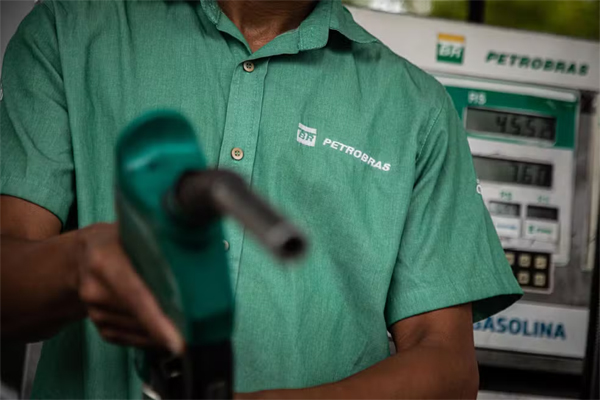Company’s new CEO and CFO reiterated last week that they see no reason to change pricing policy

Kariny Leal, Valor
RIO
EnergiesNet.com 07 09 2024
Despite the recent appreciation of the real and a relief in Brent oil prices on Friday, Petrobras’s fuel prices in the domestic market remain disconnected from import parity, according to analysts consulted by Valor. The state-run company has not changed gasoline and diesel prices since the end of 2023.
According to StoneX calculations, Petrobras’s gasoline is 19.8% (or R$0.56 per liter) below the import parity price (PPI), and diesel is 10.5% (or R$0.37 per liter) below. “Considering strictly the lag, it is quite reasonable to expect a price increase by the company,” said Thiago Vetter, an analyst at the consultancy.
“Energy prices are rising in July. Diesel and gasoline contracts on the Nymex [New York Commodities Exchange] have increased by 7.1% and 5.5%, respectively. This, combined with an exchange rate that has been continuously rising in June and July, significantly impacts the import parity prices of fuels,” said Mr. Vetter.
Last Friday, the exchange rate in the spot market closed down by 0.46%, at R$ 5.46 per dollar. After much volatility, the exchange rate accumulated a 2.27% drop last week. However, from the beginning of June until Friday, the exchange rate accumulated a 4.87% increase. Brent oil fell by 1.01% on Friday to $86.54. But since the beginning of June, it has accumulated a 5.67% increase. The exchange rate and oil prices are the factors that most influence fuel price formation.
For the Brazilian Association of Fuel Importers (ABICOM), Petrobras’s lag could increase if oil prices remain high. “Petrobras’s prices have been frozen in 2024, with no hikes, despite the high volatility in prices and exchange rate,” said Sergio Araújo, president of ABICOM. According to the association’s calculations, Petrobras’s gasoline is 18% below PPI, or R$0.61 per liter, and diesel is 15%, or R$0.62.
On July 1, Petrobras announced a 3.2% increase in aviation kerosene (QAV), or R$0.12 per liter. For Mr. Araújo, this would indicate that gasoline and diesel also need increases. The state-run company usually announces QAV changes on the first day of each month. According to the Brazilian Infrastructure Center (CBIE), Petrobras’s gasoline has a lag of 26.05%, or R$0.995 per liter, compared to the international reference. According to CBIE calculations, diesel has a lag of 11.90% or R$0.475 per liter. According to Itaú BBA, Petrobras’s gasoline is 18% below PPI, and diesel is 17%.
Petrobras reported it adopted a commercial strategy in May 2023 that incorporates the best production and logistics conditions for setting sales prices of gasoline and diesel to distributors. “This allows us to practice competitive prices compared to other supply alternatives and mitigate international market volatility, providing periods of price stability for our customers. We do this in balance with national and international markets and operate our assets safely, optimally, and profitably. This practice is especially important in times of high volatility, like now. Thus, the company continues to observe market fundamentals and, for competitive reasons, cannot reveal its decisions,” the company said.
Translation: Carlos Dias
valorinternational.globo.com 07 08 2024












